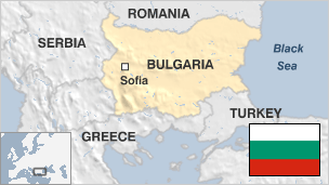
Facts and stats about Bulgaria
Bulgaria is a country in the Balkans and is the 14th largest country in Europe. The country has been an independent state since the 6th century. However, all throughout its lengthy history, the country has struggled to fend off foreign invasions and maintain its sovereignty. Towards the closing of the 14th century, the country was invaded and occupied by the Ottoman Empire. This occupation lasted for several centuries and ended only in the early 1900s.
Bulgaria took part in the two world wars. However, its experience had always been a bad one because it always took the losing side. In effect, Bulgaria was occupied and annexed by the Soviet Union after World War II. It gained independence from the huge communist rule after the USSR broke apart in the 1990s. After its independence, the country struggled to uplift its devastated economy, fix ageing and outdated infrastructures, feed the hungry Bulgarian population, and stabilize its newly created democratic government.
Today, Bulgaria is classified by the World Bank as an upper middle emerging market economy. The move to strengthen its democratic form of government and Western-style free market has been largely felt as 80% of the country’s GDP is attributed to private-owned companies. Bulgaria finally became a part of the NATO last 2004, and got accepted in the EU by 2007.
Although dramatic improvement in the infrastructure and the economy is being experienced, the country is still being battered by inflation and corruption.
- Agriculture 144
- Background 10
- Conflict 9
- Cost of living 53
- Crime 111
- Culture 27
- Disasters 11
- Economy 3223
- Education 646
- Energy 1585
- Environment 265
- Geography 85
- Government 225
- Health 296
- Import 5
6.98 million
Population. Ranked 101st in 2013.
$6,986.04
GDP per capita. Ranked 72nd in 2012.

108,610 sq km
Sq. km. Ranked 98th in 2008.